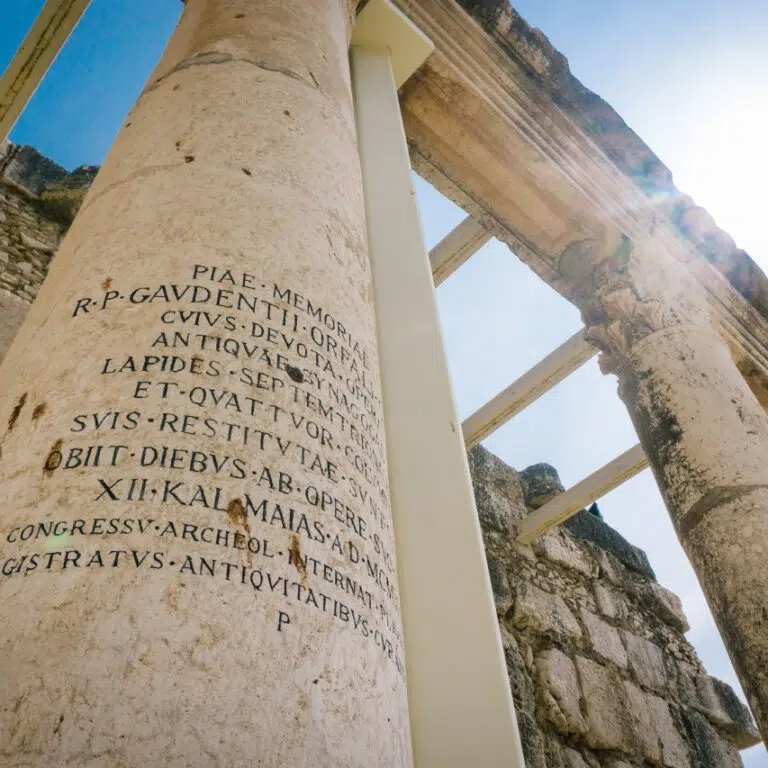One of the main attractions of classical civilisation is that you get to study a range of different subjects across the worlds of Greece and Rome be it Literature, Art History, Philosophy or Ancient History. No prior knowledge of the subject is required, just an enthusiastic attitude!
The study of Greek and Roman civilisation has always proved popular with students, in particular the stories of the heroes: Odysseus and his struggle to return home from Troy after the Trojan War; Achilles and his exploits at Troy; Aeneas and his fatal affair with Dido, Queen of Carthage.
Students also study Greek Art which comprises the masterpieces from Olympia, Delphi and Athens among others.
For the third component which focuses on ideas, students can choose whether they would prefer to study the belief and ideas behind Greek Religion (the temples and worship of Greek gods), Love and relationships (including Plato and the poems of Sappho), or Politics of the Late Republic (studying the different political philosophies of Cicero and Julius Caesar).
Unit 1: The world of the hero
Homer’s Odyssey OR Homer’s Iliad
Virgil’s Aeneid
Unit 2: Culture and the Arts
Greek Art 6th C – 4th C BC
Free-standing and architectural sculpture, vase-painting
Unit 3: Belief and Ideas
Greek Religion
OR Love and Relationships
OR Politics of the Late Republic
Examination board: OCR



